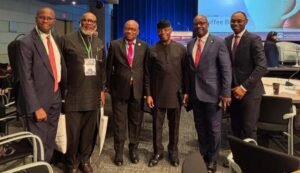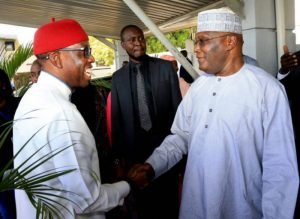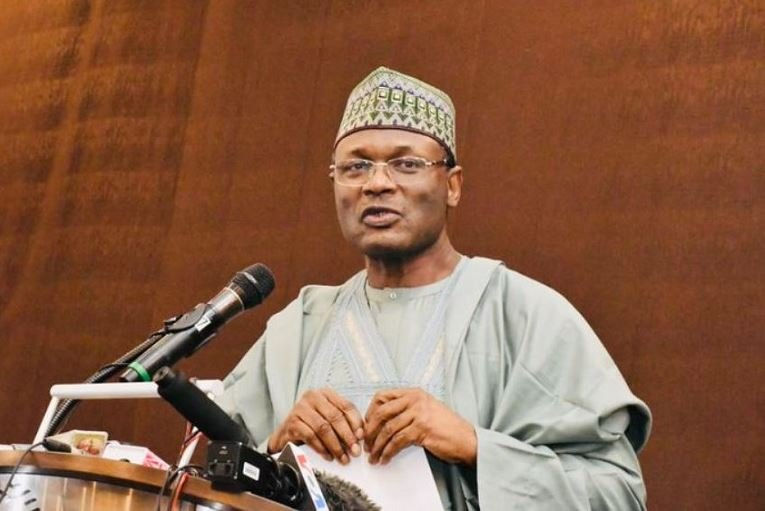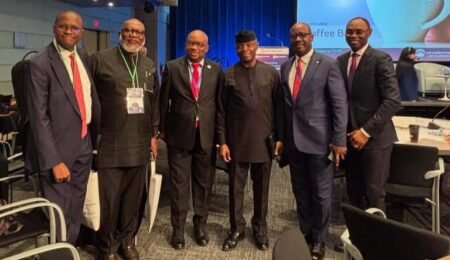The Independent National Electoral Commission, INEC, on Monday, renewed calls for the amendment to the Constitution to allow Nigerians in the Diaspora, as well as certain categories of citizens within the country, to participate in future elections.
Beyond expanding voting access, the panel is also suggesting improvements to modernise the process of voter identification.
The proposals were part of a comprehensive set of electoral reform recommendations submitted by INEC with the goal of enhancing the legislative framework that governs Nigeria’s voting system.
The document “Issues and Contentions in the Electoral Legal Framework: An Overview from INEC’s Submission” outlined key areas for legislative review and reform.
INEC proposes amending the 1999 Constitution to allow for early, special, out-of-country, diaspora, and inmate voting.
This would ensure inclusivity by allowing eligible Nigerians who are outside the country, incarcerated, or engaged in essential services during elections to vote.
“Amend Sections 12 and 45 of the EA 2022 to provide for early/special and related forms of voting. Make provisions to enable the introduction of early/ special voting to cater for eligible voters on essential services, election personnel as well as voters under incarceration, those in the Diaspora and out-of-country voting for eligible voting Nigerians outside the country during elections by introducing a new subsection 12 (2) as well as the amendment of Section 45,” INEC stated.
Additionally, the Commission suggested modernising the voter identification process by allowing electronically downloadable voter cards or alternative forms of ID approved by the commission.
“Review Sections 47 (1) and 16 (1, 2 & 4) on the design, printing, control, issuance and use of PVCs to allow for the introduction of electronically downloadable voters’ cards or any other form of ID acceptable to the commission,” the report noted.
The electoral umpire also recommended the establishment of two new institutions: an Electoral Offences Commission to investigate and prosecute electoral crimes and a Political Party Regulatory Agency to oversee internal party operations and ensure compliance with legal standards.
“Review the legal framework to establish (a) an Electoral Offences Commission and (b) a Political Party Regulatory Agency.
“This would require the amendment of Sections 75, 76, 77, 78, 79, 80, 81, 82, 83, 84, 85, 86, 87, 89, 90(4), 144 and 145 of EA 2022. These provisions border on the powers of the Commission to register/deregister, monitor and regulate political parties now being transferred to the Political Party Regulatory Agency,” the commission added.
Additional recommendations include granting INEC the ability to nominate and penalise Heads of State and FCT Offices who act as State Directors of Elections.
The commission claimed that this would strengthen administrative control and improve election management at all levels.
INEC underlined that these improvements are based on considerable operational experience, observer recommendations, legal decisions, and stakeholder discussions.
While the 2022 Electoral Act made substantial advances, INEC stated that further legislative clarity and institutional changes are required to ensure the sustained evolution of Nigeria’s democratic system.
According to the commission, a Joint Technical Committee of the National Assembly and INEC has already assessed the proposed revisions. Legislative action is likely in the near future.
INEC decided that revamping the electoral framework is not only about addressing urgent difficulties but also maintaining the long-term credibility, inclusiveness, and efficacy of Nigeria’s elections.
The report concluded, “Electoral legal framework reforms are essential to promote transparency, accountability, efficiency and effectiveness in the electoral process.
“It can help to streamline the electoral process, enhance electoral justice, clarify vague provisions, remove ambiguities and dispense with encumbrances.
“Such reforms should focus on an in-depth, long-term assessment of the impact of the provisions beyond the immediate problems they are designed to cure.”











